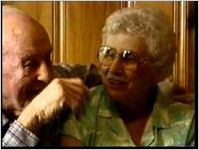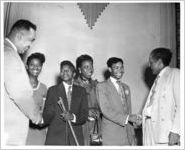Moss, Charlie
Description
Moss talks about his family background and growing up on a cotton farm in Ocee, Georgia. He then discusses his job at Atlanta Paper Company in the 1940s and his discharge, which was due to the company's suspicion that he was organizing workers. He mentions the working conditions at Atlanta Paper and at Mead and women workers at Mead. Moss discusses his roles as an officer of the Pressmans' Local. Barron Watkins was an associate in the union. Moss then explains aspects of union organizing, and sit-downs and strikes at Mead, including Hosea Williams participation in 1972. He then goes on to relate the dangers and threats faced by union officers because of union involvement and the negotiations in trying to organize the Montag factory. Moss explains the use of pro- and anti-union propaganda in various campaigns organizing Mead, Montag, and Georgia Blueprint. He says that there was a sort of discrimination against women in the printing industry and unions. There were ‘male jobs' and ‘female jobs' until "women's liberation come along and we made the change and come around, male employers began to bid on those jobs that had been primarily females jobs only, the women began pouting that they shouldn't have a right to come over." He mentions that before the change women's jobs were less skilled and lower paying than men's. Moss also says that racism was evident at Mead print shops as was segregation at Atlanta Printing, but within the Pressmans' union the membership was integrated.Charles...
Sound
Fishman, Marcia
Georgia State University Library has made this item available under a Creative Commons Attribution-NonCommerical-NoDerivatives 4.0 International License. For more information, see http://creativecommons.org/licenses/by-nc-nd/4.0/
















![ECF hobbies [gardening], 1972-1975 ECF hobbies [gardening], 1972-1975](https://d2l9jrtx1kk04i.cloudfront.net/710e6e7f31cc2c1b6ff78dfa6135497c2d8d7e2d.png)

